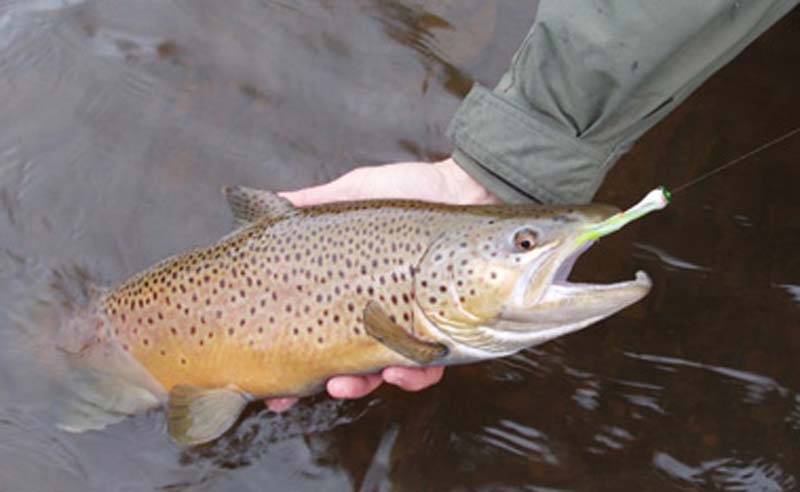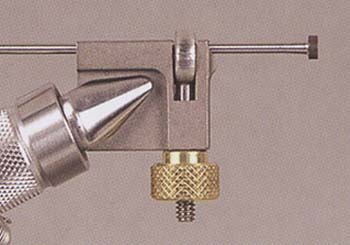
Flip Pallot and Brian Flechsig talk about Mad River Outfitters‘ over two decades of operation. MRO has a great online service. Central to the Great Lakes they speak salmon and steelie… with a brogue.
Tube Flies:
By Skip Clement
Making my catching a lot easier, hiding the hook a part of the deception, not letting the fly be part of escape leverage, making large flies lightweight, preserving my fly inventory, putting flies in my pocket
By Skip Clement
There seems to be an undeserved reluctance by a lot of good U. S. fly fishers, in certain types of angling pursuits, to avoid the advantages of tube flies, and you’d think there is or are apparent reasons for this lack of magnetism. I asked around, and none make any sense – mostly here in Georgia only shrugged shoulders?
Ask a trout fisher that uses surface swimming flies, streamers, or needs to swim a fly just below the surface, fitting the advantages of using a tube fly, why the shrugging or blank stare, responses you’re not expecting.
Bass fishers of the conventional fishing rod religion do like using craw tubes, hard-headed tubes, and any rubbery worm-like lure in a tube configuration. In the few money fly fishing only bass tournaments, a tube provides “quick” changeouts, and quick is the salt & pepper of any money bass tournament [quick casts, quick boats, quick engine starts, quick retrieves, quick dehook, quick pee, find it quick, and quick anything].
The top captains and their top offshore bill-fishers on a fly are almost 100% tube flies. The hooks determine a fly’s stealth, bite purchase and strength like a #12 or 6/0. The pattern size and style aren’t dependent on hook style like conventionally tied flies!
A huge tube fly 6-inches long could have a #14 short shank hook, or 8/0 hook. Any hook size choices you’re making on a tube fly has a significant impact on the charm the fly has on the game fish, which is not an option if the fly is tied directly to the hook shank.

Salmon trutta makes a short strike of tube fly, and says, “Uh oh,” but appreciates the MAD RIVER OUTFITTERS release.
Ask a fly fisher dedicated to snook, redfish, permit, smallies or largemouth bass, bonefish, lake trout, walleye, Canadian size Salvelinus fontinalis [brook trout], or tarpon, and only a smattering of tube fly enthusiasts – possibly. It’s almost as hard a sell, to get them interested in tube flies, as it is to get a Russian made ‘QAnon’ conspiracist to use precautions regarding COVID.

This fits on your vise and you are in business to tie any kind of tube fly there is. A good one costs about $35, a cheaper one, yes, but what’s your point? Get one here . . .
Atlantic salmon, a pocket full of tubers, maybe. The Great Lakes for imported Pacific salmons and steelhead, a small core of converts, but you have to “Go West Young Man” to find that tube fly users are not driven away in chains or just sent away and told never to come back. They, like their Canadian west coaster relatives, and Alaskan fly fisher brothers and sisters, are all in on tube use and spey and switch length rods.
Go to Scandanavia or Europe, and the tube is the stand out weapon of choice along with shorter than we find here in the U. S., spey and switch rods. And speaking of outstanding – on the near horizon is Henry Fly Rod and Reel. They have a collection of fatigue resistant, short, two-handed fly rods as designed by yours indeed and hand-built by master rod designer and builder, David Redington; and new, light, black only fly reels made to spec by the master craftsman, Kristen Mustad of Nautilus, and tube flies tied by legal immigrants with all the right stuff – “Dedicados a hacer que nuestras moscas sean perfectas todo el tiempo.”
More on tube flies by Skip and others here. . .






